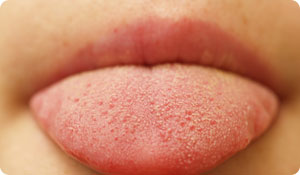
What exactly is saliva, and what is its purpose? Could your saliva reveal secrets about your health? We've got your "saliva basics" (and beyond) right here.
Saliva is the watery, sometimes frothy liquid that forms in your mouth. Salivary glands in the cheeks and jaw produce between two and four pints per day. Most of it is water, but saliva also contains enzymes, chemicals, proteins, and biochemical markers that help us digest our food, identify disease and decode genetics.
Saliva's primary function is as a digestive aid that moistens, softens, and partially dissolves food and lubricates your mouths so you can swallow the food Without saliva, you'd scratch up the delicate lining of the mouth, tongue, and throat and choke on your food. But saliva does more than just provide water. It also adds enzymes and proteins that start the digestive process. By the time food reaches the stomach part, the food is already soft and able to provide the body with nutrients.
Saliva helps keep the mouth and teeth clean and hydrated. It's no replacement for thorough brushing, but it helps keep oral hygiene under control until you can get to a toothbrush and sink.
Saliva has important medical functions too. The field of "salivary diagnostics" has become one of the most promising areas of medical research. Many diseases and genetic conditions can be detected more quickly, easily, and affordably by testing saliva instead of blood or tissue. All it takes is a quick, painless swab of the mouth. While direct evidence of a disease isn't always present in saliva, it may contain specific biochemical markers or proteins that indicate (provide hints) that a disease is present.
What can saliva detect? Scientists already use saliva to detect HIV/AIDS and screen for a variety of hormonal diseases and genetic conditions. They're currently studying how saliva can be used to diagnose a wide range of other diseases, including certain cancers and substance abuse. In 2010, the National Institutes of Health funded two new studies using saliva for early oral cancer detection and Sjogren's Syndrome (an auto-immune disease). In some cases, saliva testing can be used to detect recent use of drugs and alcohol. Saliva is also used to collect DNA for genetic screening tests. If problems show up on a saliva screening test, doctors will order further diagnostic tests to verify or rule them out.
How do you know if your saliva is normal? Saliva should be clear, watery and virtually tasteless. If it's abnormally thick, has an unusual taste, odor, or color, contact your dentist or primary care physician for a quick check up.





